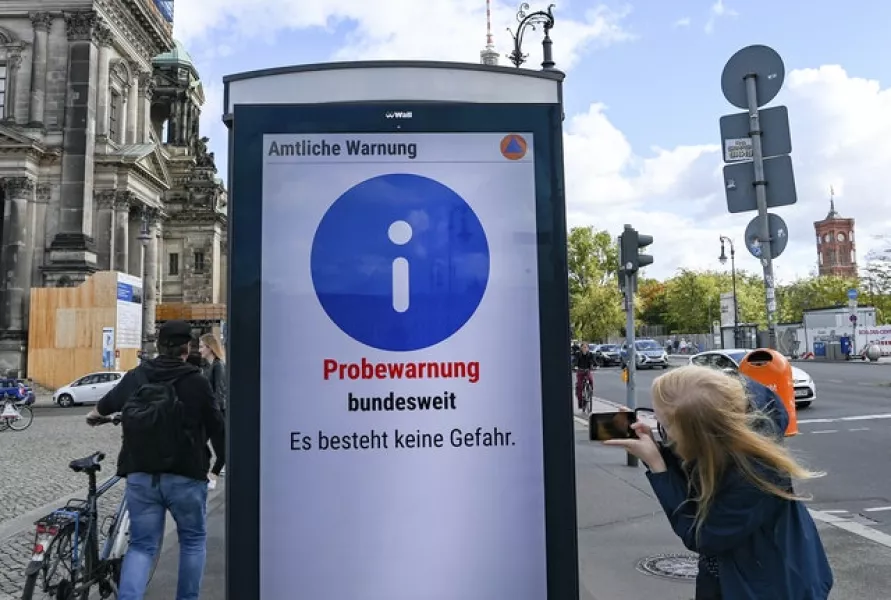The Federal Office of Civil Protection and Disaster Assistance cautioned the public well in advance to be prepared for the test, which employed air-raid sirens, smartphone apps and other alert systems.
Teachers were told to tell students what would be happening, and animal welfare groups advised owners on precautions to protect their pets.
But then, widely, nothing.
In some major German cities, such as Berlin and Munich, it turned out the sirens had been removed at the end of the Cold War – something known by local authorities but not clarified in the blanket warning. In other cases, the system just did not work.

Alerts by the national warning app Nina also arrived late or not at all.
The civil protection office said an initial analysis appeared to indicate too many people were involved in activating the alarm at the same time.
“A number of places put out the alert all at the same time at 11 o’clock, which should not have happened,” said the head of the federal agency, Christoph Unger.
“We wanted to issue the warning only at one place, but several did it simultaneously, and that overloaded the system.”
The German Interior Ministry said later that a “technical problem” caused the failure and would be investigated “comprehensively.”
However, there were also places where the alarm worked. In Potsdam and Cottbus in eastern Germany and in Cologne in the west of the country sirens could be heard. In nearby Leverkusen, some sirens went off, but not all, it was reported.
One reason sirens failed to sound in many communities appeared to be the devices no longer existed, German news agency dpa reported.
During the Cold War, West Germany had a nationwide system of more than 86,000 sirens to warn people in case of war. Test alarms were frequent. But with the fall of the Iron Curtain and the reunification of East and West Germany, nationwide testing came to an end.
During disastrous Elbe river floods in 2013, authorities realised they needed a new system to warn of imminent catastrophes, such as nuclear disasters, fires, chemical accidents or the extreme weather events which are expected to increase due to climate change.
Although the test did not go as planned, authorities said it was still a valuable exercise.
Germany’s Deaf People’s Association took a lighthearted poke at the siren failure, tweeting: “Well, we didn’t hear anything.”
But it added that accessibility for people with impairments is a serious problem, noting that the US has a simple but effective solution: old-fashioned text messages.







